A year ago, the Metro Louisville launched “Lots of Possibility,” a competition asking engaged citizens with an eye for redevelopment to re-imagine vacant lots around the city. Shortly after the end of the competition, a project called dyeScape was announced as one of the winners in the Permanent Use category, for which they received ownership of a vacant lot and $15,000 to fund their project.
Staying true to the competition, the project collaborators at dyeScape—Louis Johnson and sisters Colleen and Maggie Clines—have demonstrated the possibilities that this vacant lot had to offer. What was once a grassy square bounded between Interstate 64, Portland Avenue, and 17th Street is now a vibrant flower garden on an otherwise unassuming block.
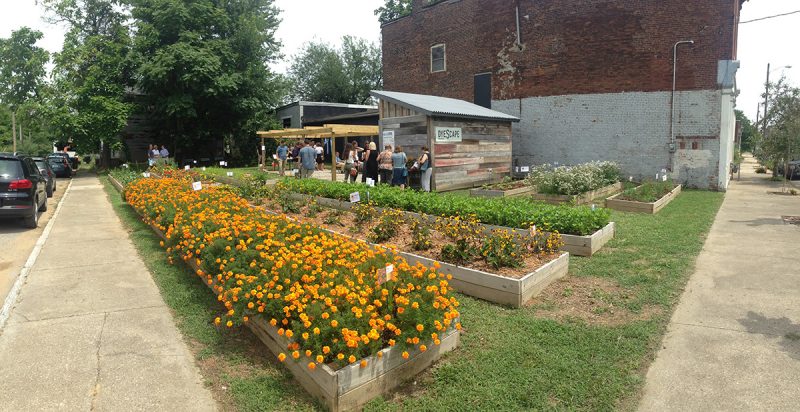
“At every scale, we’ve been focused on getting these raised beds built and getting everything planted for the season,” Colleen said. “The point we’re at today is to kick off the demonstration gardens and to share the project with the community.”
Although dyeScape’s launch party was held on August 9th, the origins of the project go way back, on another continent, long before Lots of Possibility was even a thing.
“Anchal started when I was a graduate student at Rhode Island School of Design studying landscape architecture,” Colleen said. “I was taking a seminar, went to India, and part of the project was to work with the local community there and come up with creative solutions to economic barriers.” The term Anchal means shelter, or the edge of a sari used to provide comfort and food, according to the nonprofit.
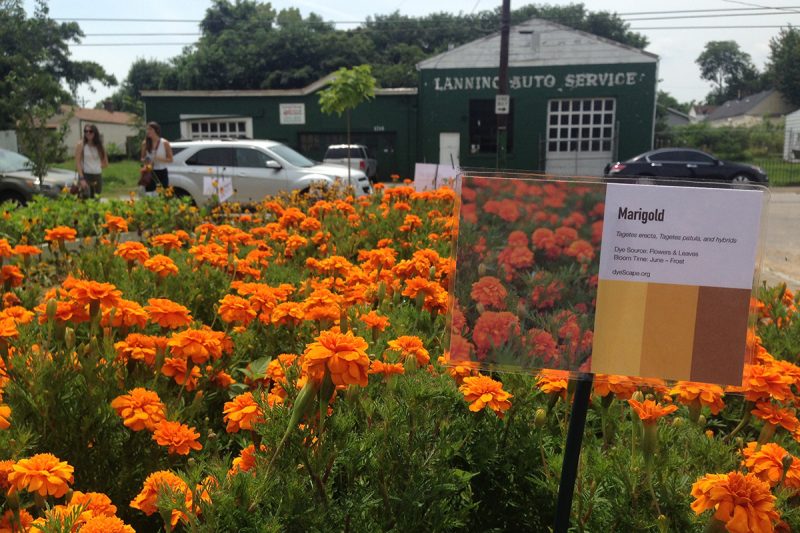
In India, Colleen worked with an NGO that provided local sex workers with alternative careers in textiles. They developed a business plan to help the women design, create, and market their goods. Since then, the Anchal Project has collaborated with Urban Outfitters and celebrities like America Ferrera.
“We started with only eight people, making quilts,” Colleen said. “Five years later, we’re working with over a hundred women in India now.”
After graduating, Colleen moved back to Louisville and looked for ways to bring the Anchal Project closer to home. That was when Louis Johnson joined the team and entered Anchal in the vacant lot competition.
“That was the catalyst that brought it local,” Colleen said.
According to project collaborators, dyeScape itself is a local manifestation of the Anchal Project, with the vision of building a network of small-scale gardens across Louisville.
“We started with a proposal for a dye garden, which for now is just a demonstration garden, but we’re sharing the idea so this could be replicated on other vacant lots,” Johnson said. “The gardens can revitalize neighborhoods with natural landscapes, and with the Anchal Project, local women will have jobs to plant, harvest, and dye textiles using local materials.”
With hundreds of lots remaining vacant throughout the city, the dyeScape team hopes to expand production in areas like Portland, Russell, and Shawnee.
“Our goal is to identify other lots where certain plant varieties might be better suited and maybe try to grow there as well,” Johnson said. “For example, marigolds are really successful here. So if there’s a lot where goldenrods might do better, we’ll try it out. But I think long-term, the possibilities are endless.”
Johnson and Clines explained that the current demonstration garden would eventually move out of the raised beds and into the ground when dyeScape becomes more production-focused.
“We’ll be able to do some dyeing here on this lot,” Colleen said. “We fundraised and received some pots and stoves so we can dye on-site, but someday we could start a dye house where we can produce textiles locally. And, you know, that’s what people want. They want to eat local, they want to buy local, and they want to wear local. So that’s where things are moving. It’s exciting.”
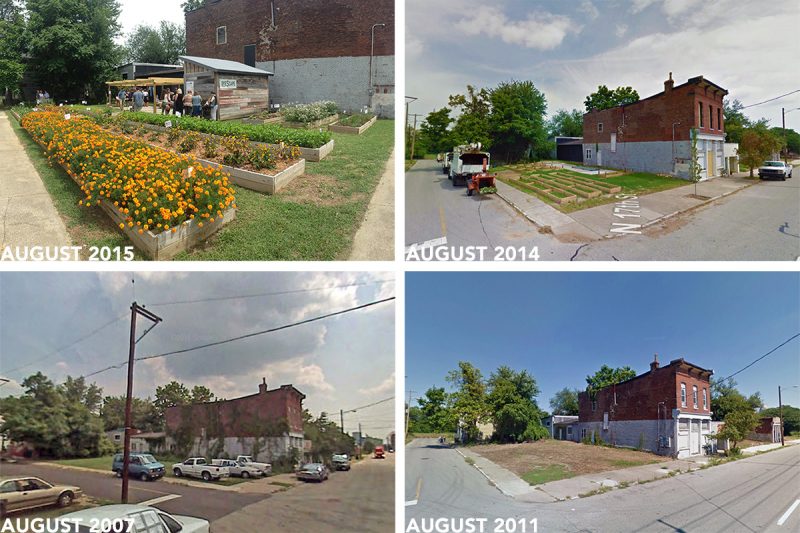

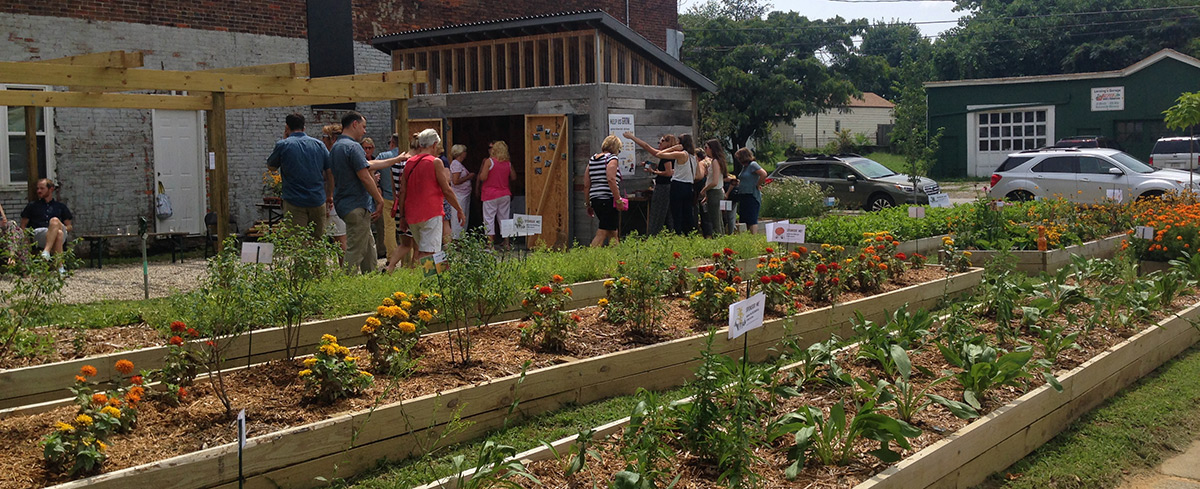
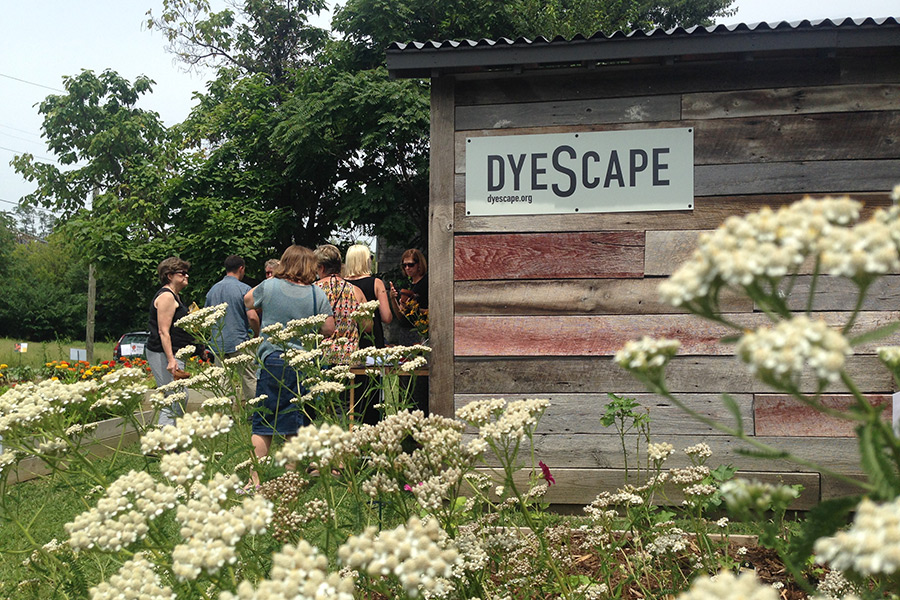
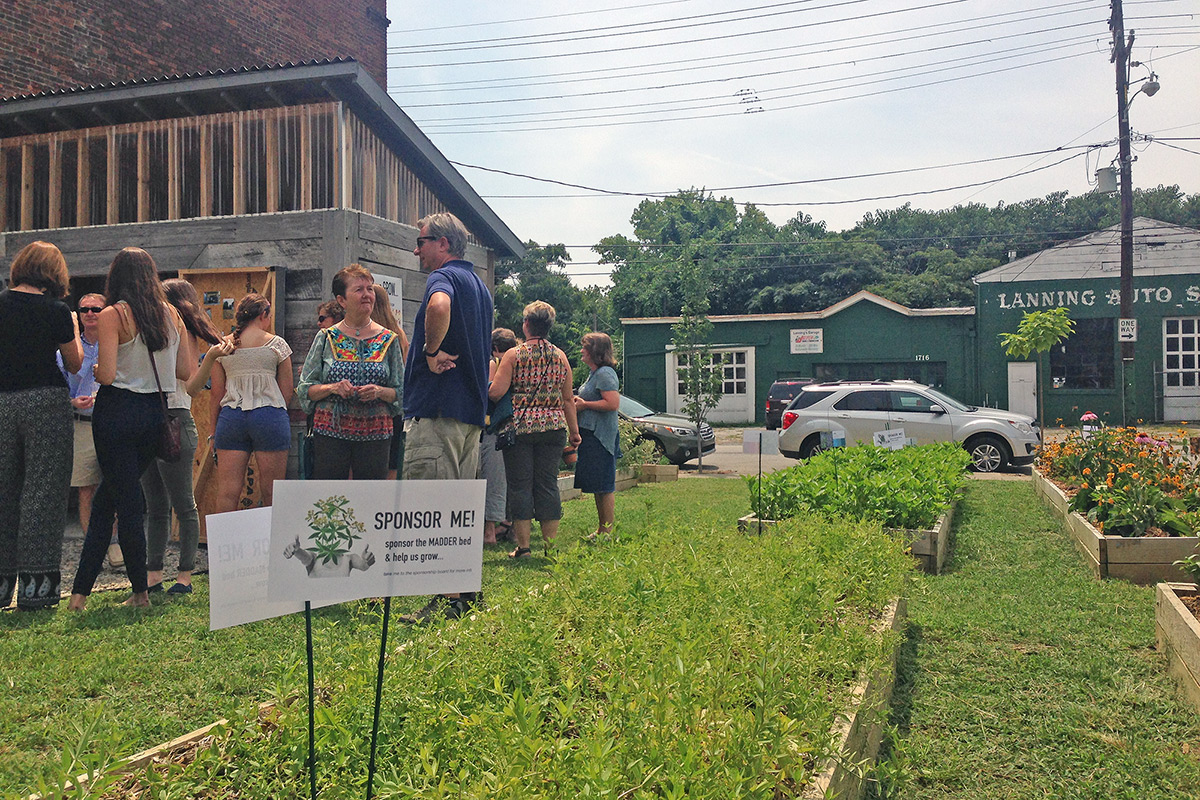
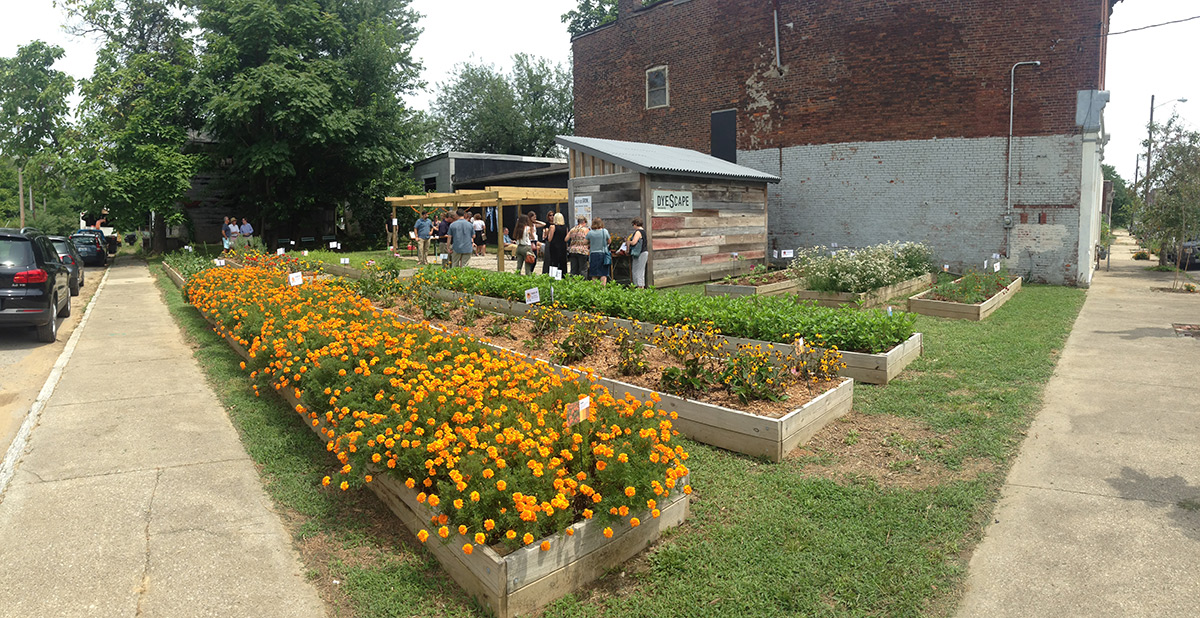
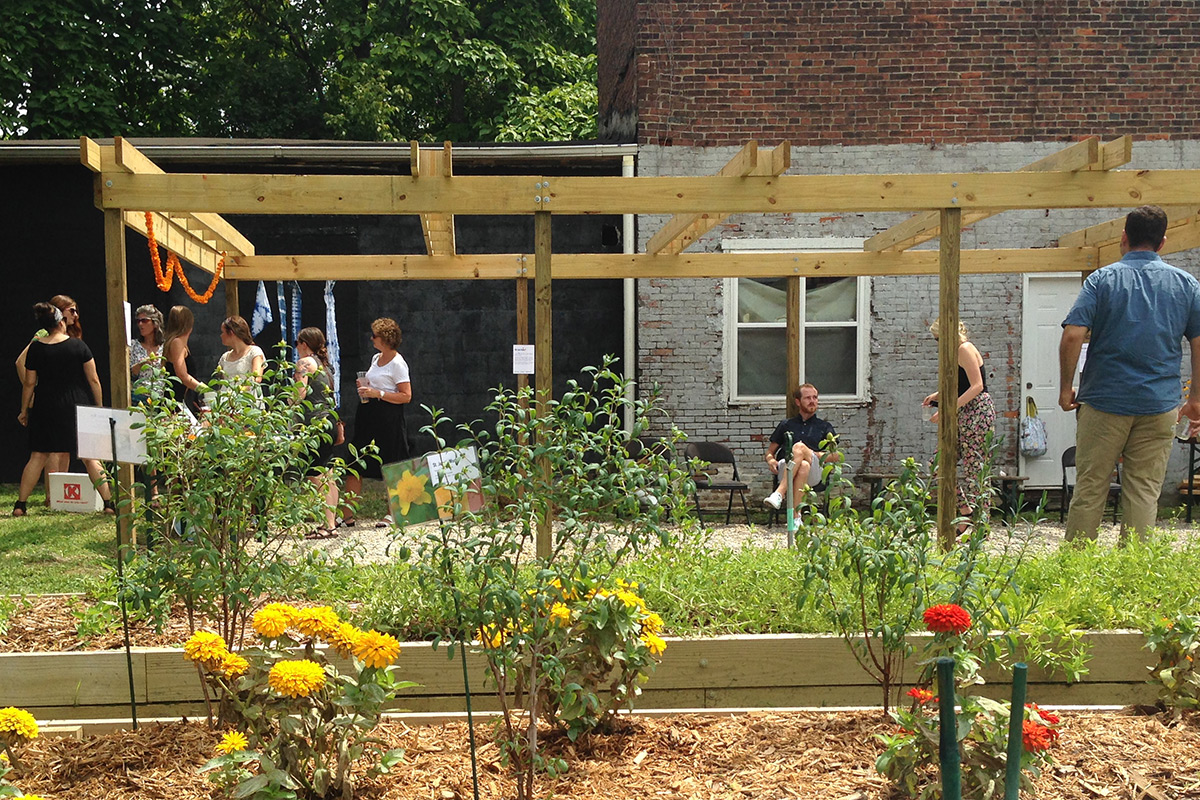
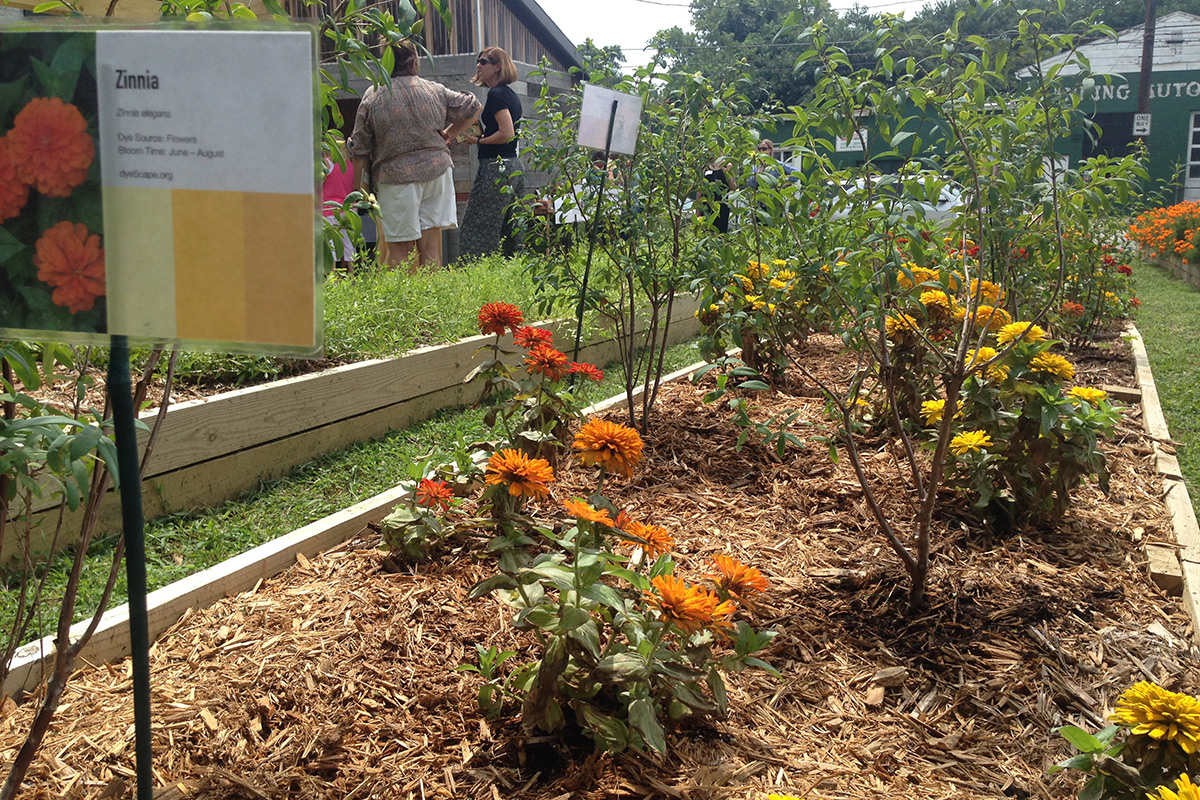
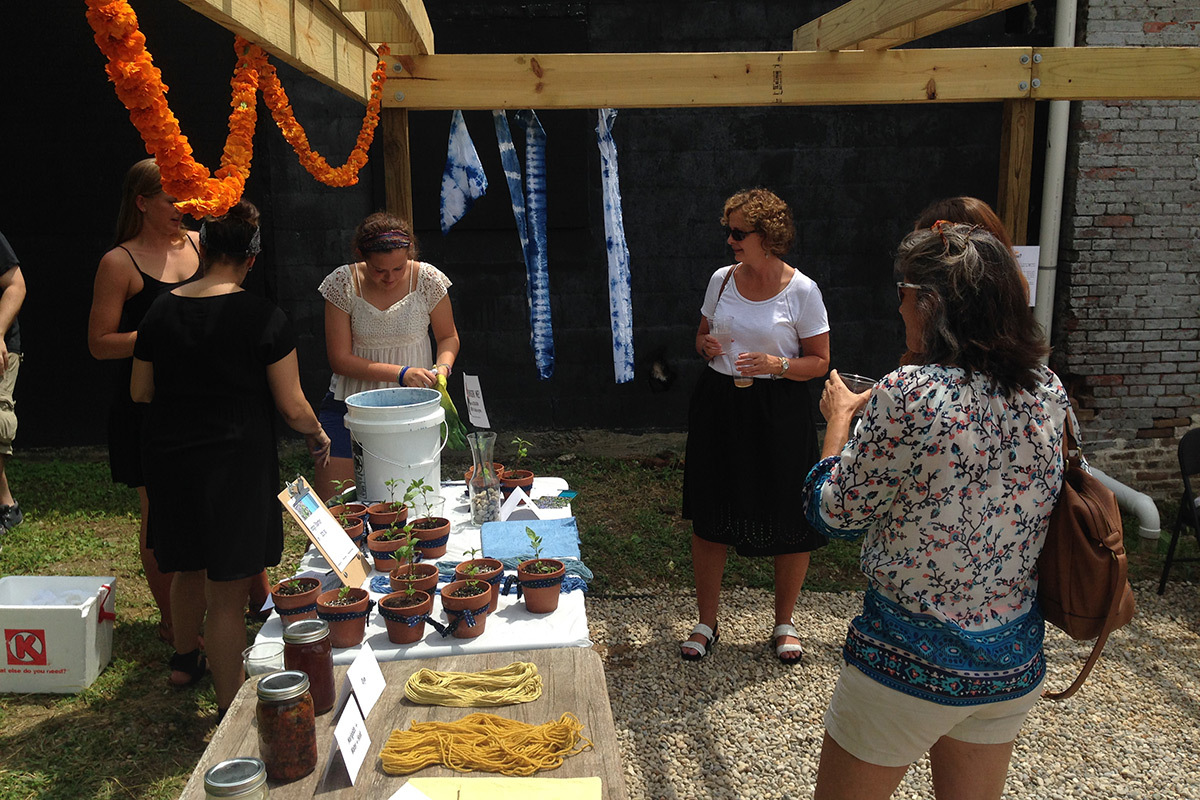

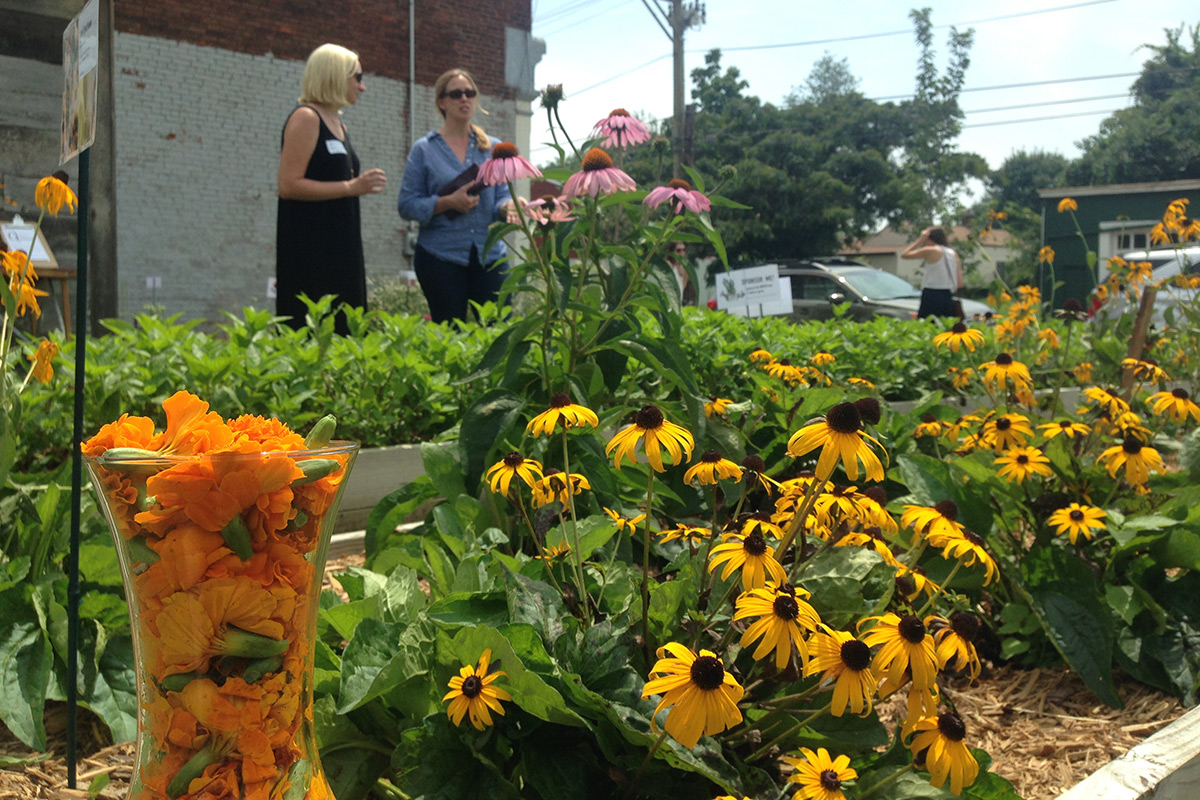

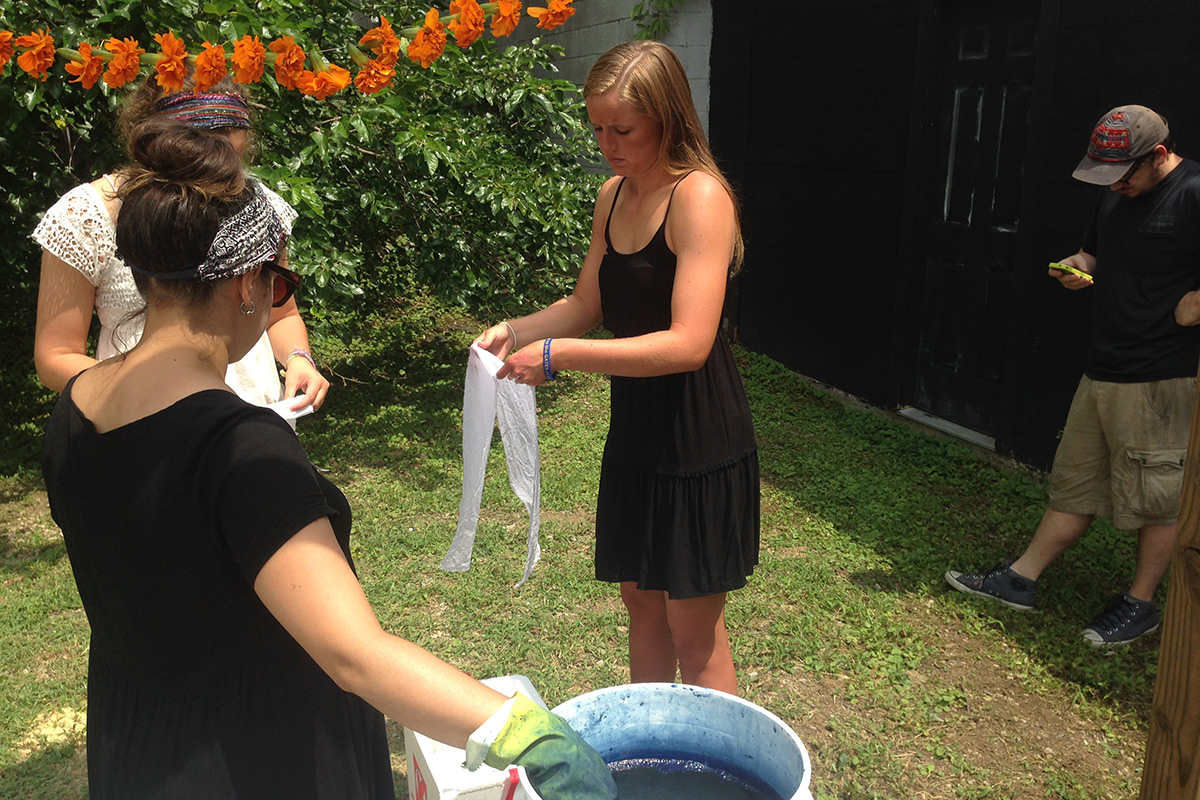
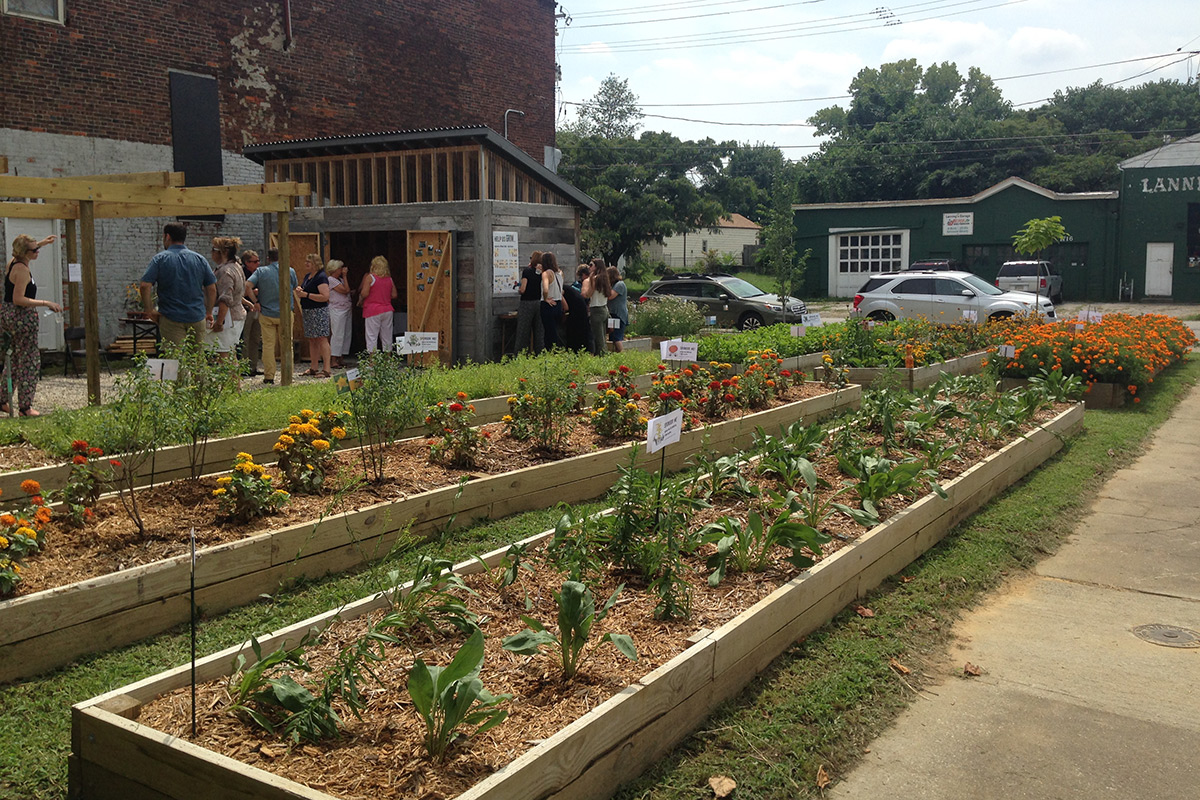
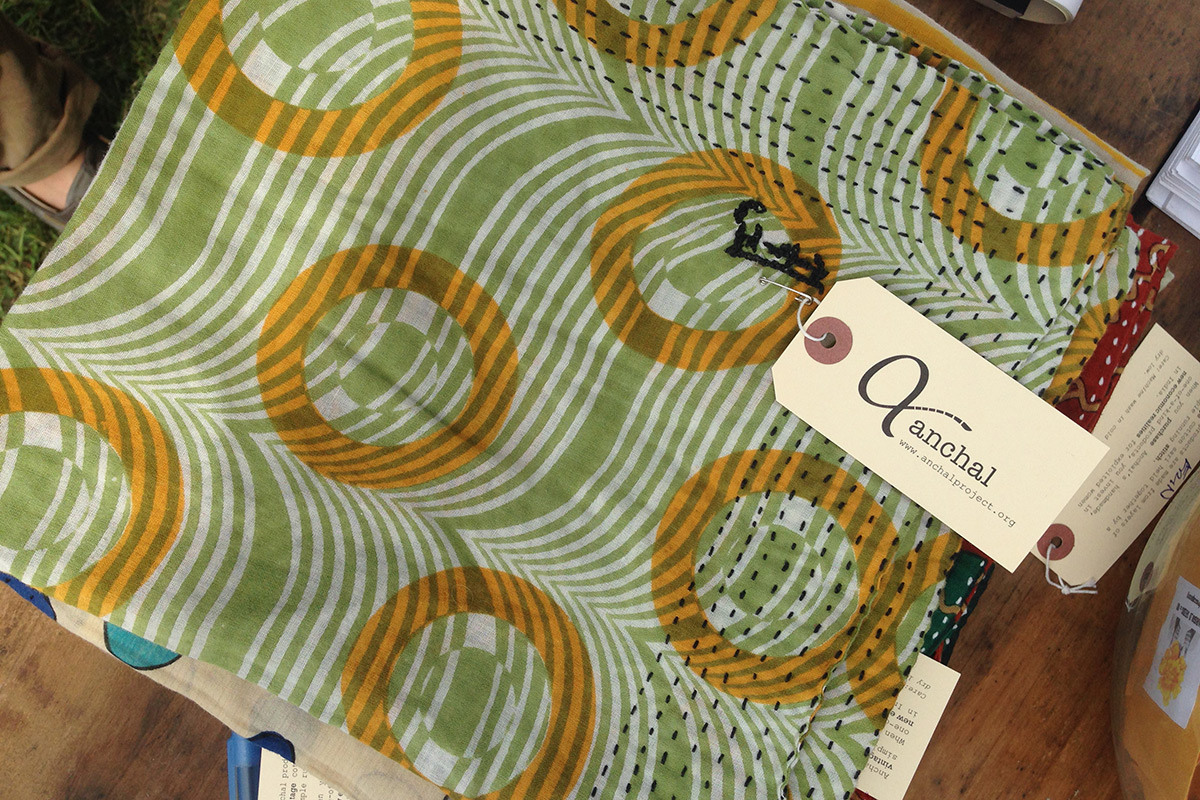

It’s inspiring to see that such a small public investment can make a transformational change. With enough critical mass, projects like dyeScape can become part of the catalyst needed to restore a sense of community and encourage reinvestment in so many of our urban neighborhoods. Congratulations to the Anchal Team and Mayor Fischer’s Vacant and Abandoned Properties Administration for making this a reality!